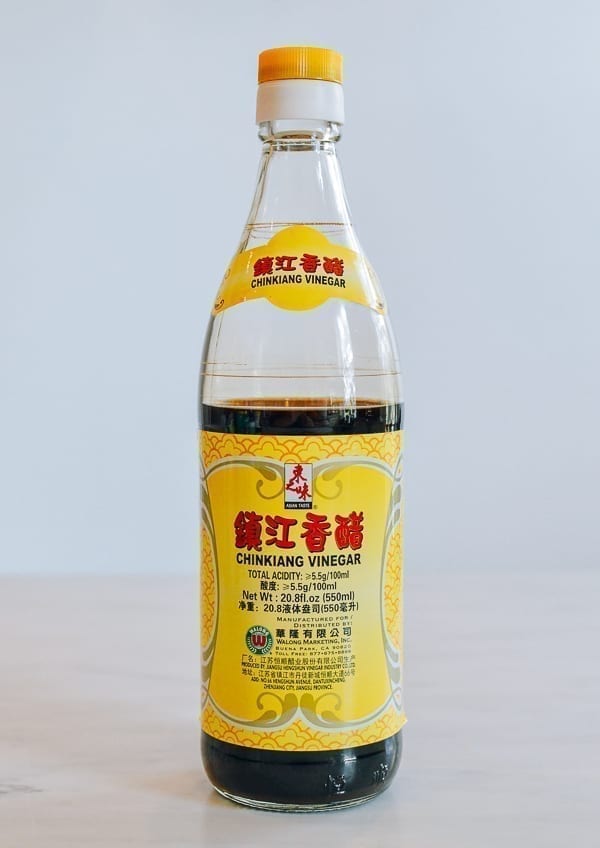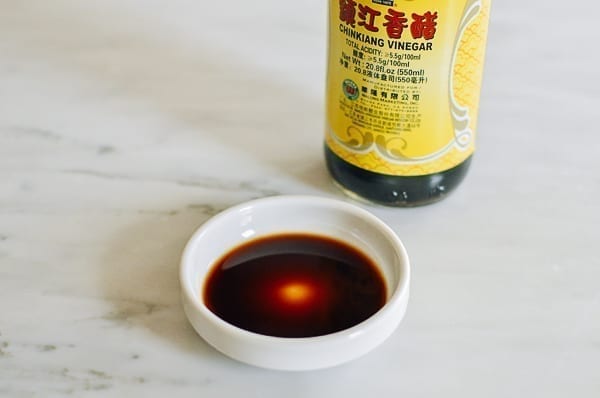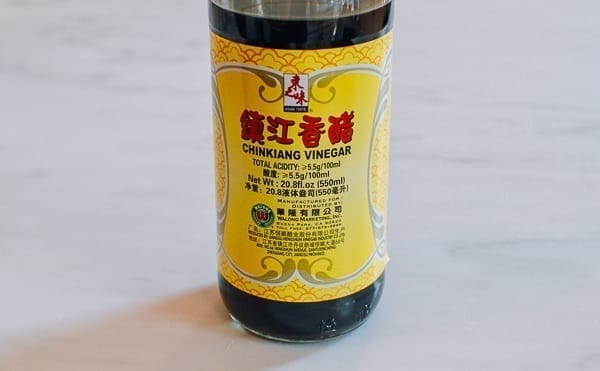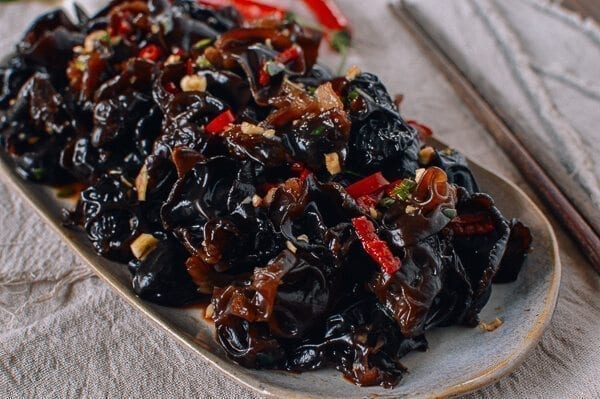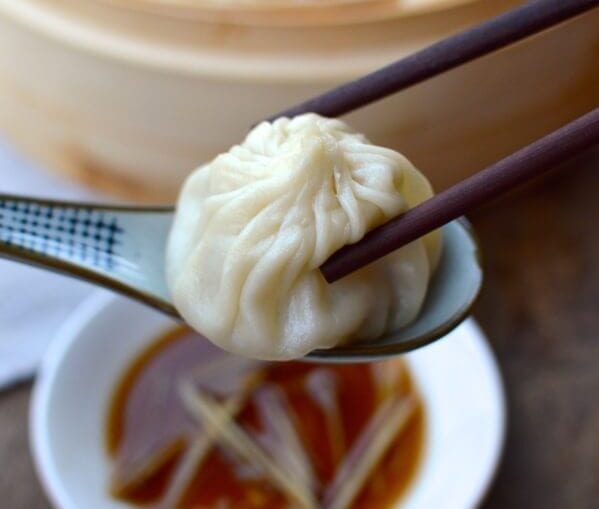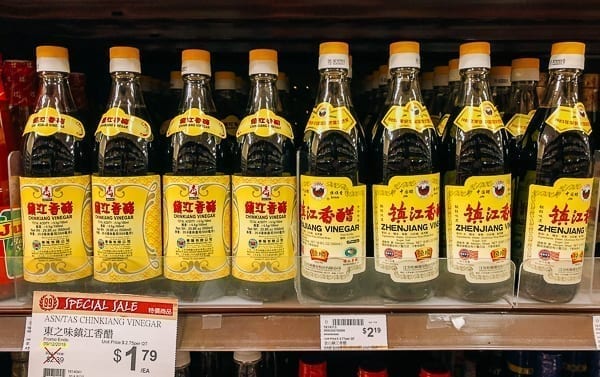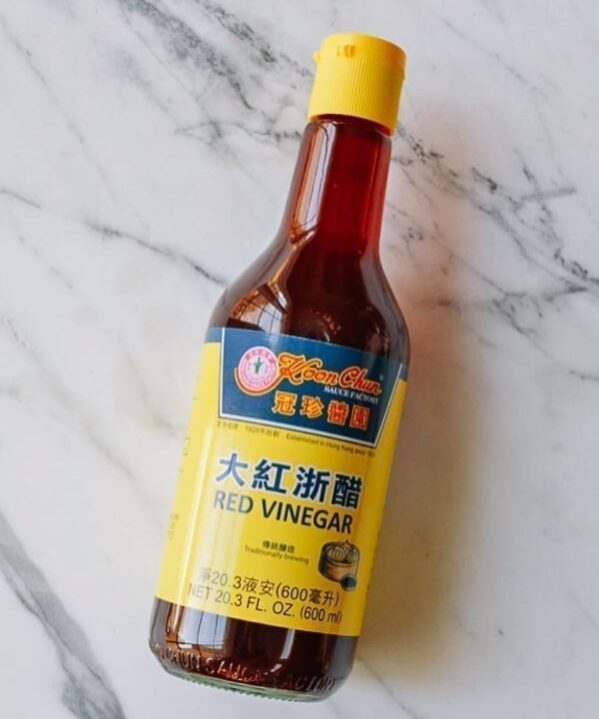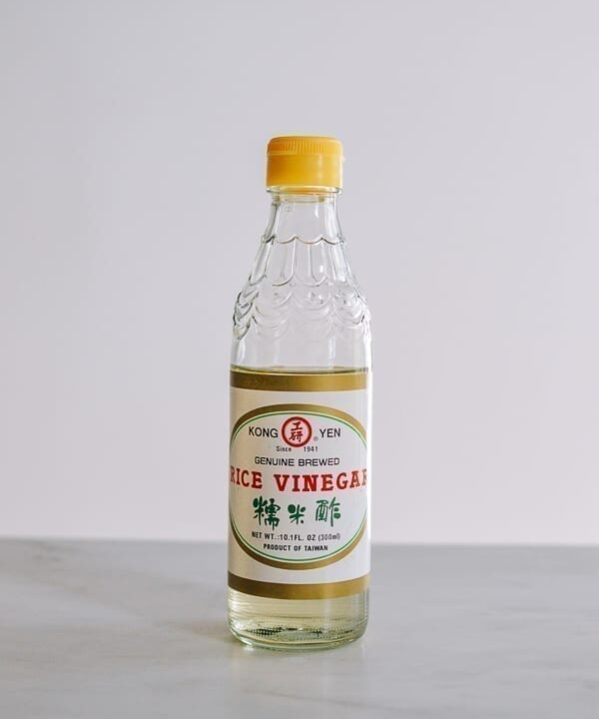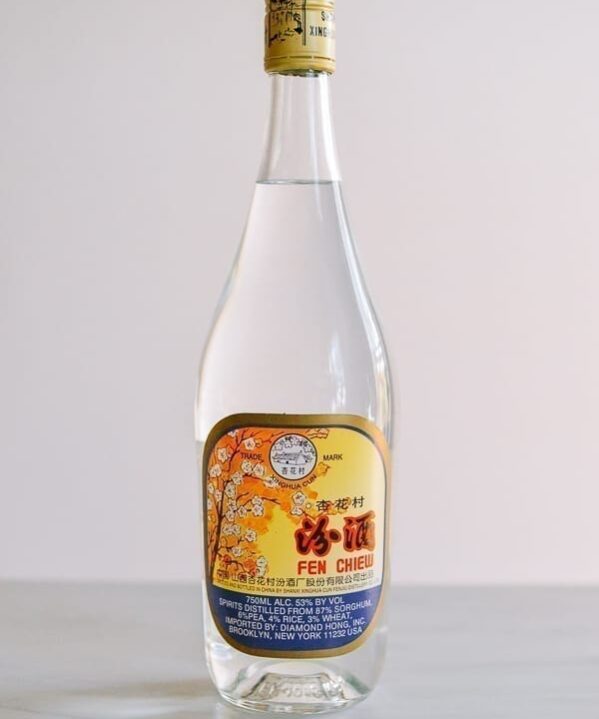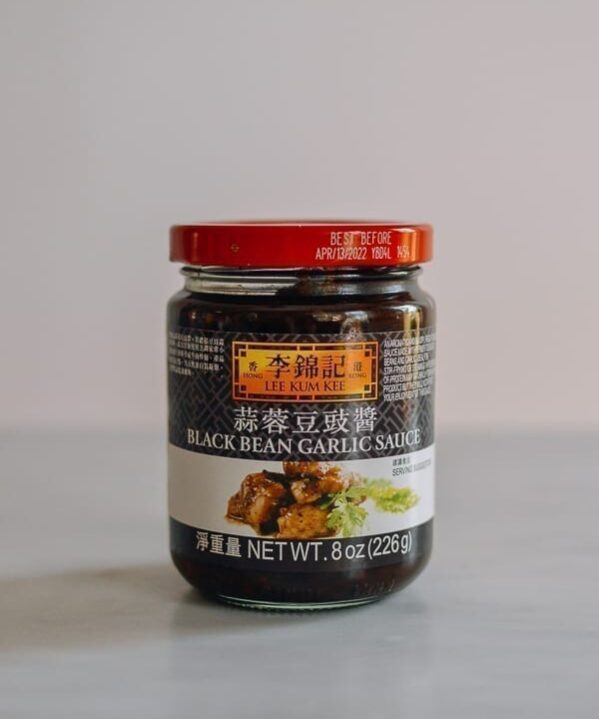The three main types of rice vinegar (mi cù, 米醋) used in Chinese cooking are white rice vinegar, black rice vinegar (or Chinkiang Vinegar), and red rice vinegar.
In this article, we focus on Chinese black vinegar, also known as black rice vinegar, dark vinegar, Chinkiang vinegar, or Zhenjiang vinegar.
(For more info on the other two types, check out their individual articles: White Rice Vinegar & Red Rice Vinegar.)
What Is Chinese Black Vinegar?
Chinese black vinegar (zhènjiāng xiāngcù, 镇江香醋) is made from fermented black sticky rice or regular glutinous rice. It can also be made using rice in combination with sorghum and/or wheat.
Originating in the city of Zhenjiang in Jiangsu province, it is quite literally black in color and has a full bodied, malty, complex taste. It is mildly acidic, less so than a regular distilled white vinegar, with a faintly sweet flavor.
How Is It Used?
Chinese black vinegar is widely used in Chinese cooking for all types of cold appetizers, braised meats and fish, noodles and as a dipping condiment for dumplings.
It can be used to add acidity and sweetness to braised dishes like Chinese Braised Fish, where it cooks down to sweet black gold. It can also be used in dressings for cold appetizers and salads, such as our Wood Ear Salad, Tofu Salad, or Suan Ni Bai Rou (Sliced Pork Belly with Garlic Dressing).
It is also used as a classic dipping sauce for soup dumplings along with julienned ginger. It can add acidity to stir-fries as well, such as this Chinese Cabbage Stir-fry with Pork Belly.
When we’re too lazy to make a full on dipping sauce for dumplings, we drizzle black vinegar over dumplings as well. Some of us could even drink this stuff––lookin’ at you, Sarah!
Buying & Storing
Look for bottles with yellow labels marked Chinkiang Vinegar or Zhenjiang Vinegar at your local Chinese grocery store.
You may also be able to purchase it online, though it will be significantly more expensive (about double, or in some cases, triple the price). Store in a cool, dry place, like your pantry.
Substitutions for Black Vinegar
If you can’t find black vinegar, you can substitute white rice vinegar/rice wine vinegar, which is usually more readily available, even in regular supermarkets.
In a real pinch, you can substitute a bit of balsamic vinegar, though be careful because some balsamic vinegars can be very syrupy and sweet.
Our Favorite Dishes That Use This Ingredient:
- Shanghai Soup Dumplings
- Stir-fried Cabbage with Glass Noodles
- Suan Ni Bai Rou (Sliced Pork Belly with Garlic Dressing)
- Chinese Tofu Salad
- Wood Ear Mushroom Salad
- Chinese Cabbage Stir-fry
- Chinese Pickled Cucumbers
- Tiger Skin Peppers
If you have further questions about Chinese black vinegar, let us know in the comments––we try to answer every single one.
